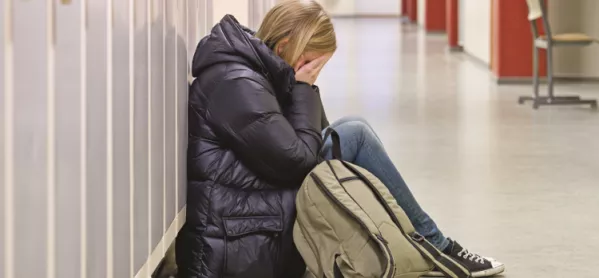Nearly half of all councils do not provide any written guidance to schools on how they should deal with cases of peer-on-peer sexual abuse, Tes can reveal.
Charities have described the finding as “extremely worrying”, given the mounting evidence that sexual offences among young people are on the rise and widespread concerns that guidance issued by central government is insufficient.
Tes sent a freedom of information request to the 152 local authorities in England that have education functions, asking for any policy, guidance or resources that they use to help schools deal with peer-on-peer abuse.
Of the 129 councils that had responded to the request by the time Tes went to press, 58 of them - 45 per cent - indicated that they did not provide any guidance.
Rachel Krys, co-director of the charity End Violence Against Women, said the findings were “extremely worrying, but not surprising”.
Carron Fox, research and policy officer at Barnardo’s, said it was “concerning” that schools across a significant swathe of the country were unable to draw on information from their local authority about peer-on-peer abuse.
“I think it’s very concerning because how then does a school deal with it?” she said. “It does seem very concerning that there isn’t that guidance.”
Academisation and the creation of free schools has meant that local authorities are no longer solely responsible for supporting schools in handling allegations of peer-on-peer abuse and other safeguarding issues.
However, councils still run nearly a third of secondary schools in England. They also have a strategic safeguarding role within their area that includes establishing a local safeguarding children board.
In June, a Tes investigation found that reported sex offences in schools have more than tripled in four years. In nine out of 10 cases, the alleged victim in the incident was a young person.
The patchy local guidance on peer-on-peer abuse may also raise concerns because the existing central government advice to schools on how to deal with the issue has been criticised as insufficient.
In March, Tes reported warnings by MPs and charities that schools were struggling to respond to peer-on-peer abuse because of a “gap” in the official safeguarding guidance.
Analysis of those councils that do provide guidance shows that schools in different parts of the country are offered conflicting advice.
Ms Krys said parents should not have to put up with a “postcode lottery” in how their child will be treated should the worst happen at school.
Councillor Richard Watts, chair of the Local Government Association’s children and young people board, said that local authorities take their child-protection responsibilities “extremely seriously”.
“When incidents of this nature take place, it is important that schools - regardless of whether they are council-maintained, academies or free schools - work closely with their local authority to provide appropriate protection and support to the children and young people involved,” he said.
A DfE spokeswoman said: “We publish statutory guidance for schools and colleges with specific advice on how they should tackle peer-on-peer abuse.
“It makes clear allegations of this type should never be dismissed and sets out how they should be investigated.
“Schools and colleges should supplement this by working closely with their LSCB to develop their policy and procedures.”
This is an edited article from the 21 July edition of Tes. Subscribers can read the full article here. This week’s Tes magazine is available in all good newsagents. To download the digital edition, Android users can click here and iOS users can click here




